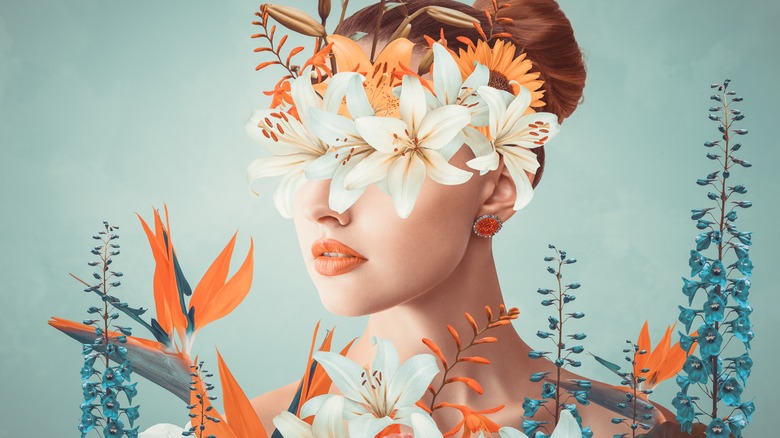The Unexpected Link Between Depression And Creativity
When you think about creatives such as Vincent Van Gogh or Sylvia Plath, you also might hear about their episodes of mania and depression. Plenty of historical accounts have given anecdotal evidence that people like Van Gogh, Plath, Martin Luther, Ernest Hemingway, Winston Churchill, and Theodore Roosevelt might have had bipolar disorder, according to a 2008 study in Dialogues in Clinical Neuroscience. However, current research has found it difficult to assess the link between creativity and mood disorders because different studies define creativity and mental health differently.
A 2017 review in Perspectives on Psychological Science found that creative people are more likely to have mood disorders than non-creatives, but creative people are also less likely to have depression. People who suffer from mood disorders aren't more creative than people who don't have mood disorders. However, people who suffer from depression have less creativity than people who don't suffer from any mood disorder. On the other hand, people who have milder bipolar disorder have more creativity than people without mood disorders. If this sounds confusing, read on.
Mental health and creativity
A 2012 study in Clinical Psychology Review found that manic episodes in bipolar disorder might be somewhat related to creativity. People experiencing mania describe themselves as creative, but people with depression don't see themselves as creative. Mania is also linked to openness to experience, which is the personality trait that seeks new ideas and opportunities. People experiencing depression usually are less open to experience. Openness to experience is also linked with creativity. The study also found that positive emotional states open people up to the larger picture, which is also connected to creativity.
It's not that people with depression can't have a creative outlet. What else explains those sad songs? A 2005 article in Emotion investigated the link between depression and creative behavior. It has to do with self-reflective rumination — that is, continually mulling over the past or future while experiencing negative emotions (via Michigan State University). The article noted that if people experiencing depression engaged in self-reflective rumination, they were more likely to engage in creative expression.
A 2022 review in Frontiers in Psychiatry said our approach to creativity can affect our mental health. If you believe creativity is part of your personality or identity, it's more likely to harm your mental health. If you consider creativity to be an approach, such as a means of flexibility or solving problems, creativity can have a beneficial effect on mental health.


